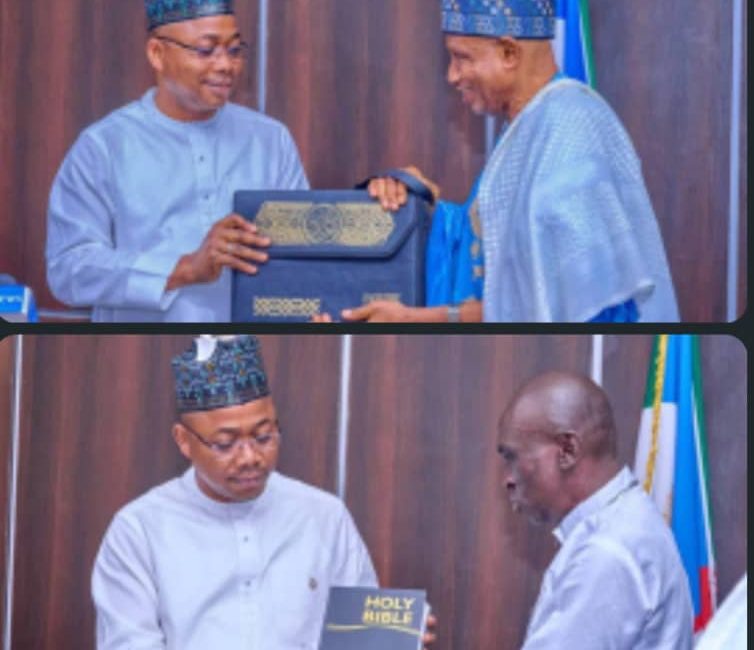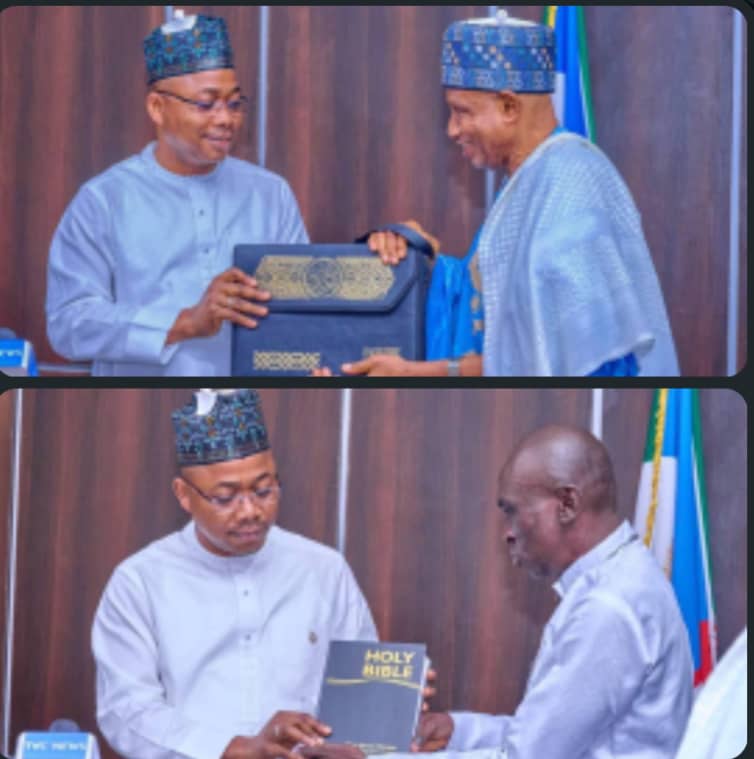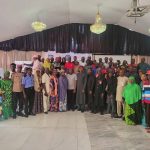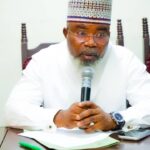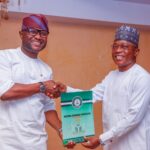From my very first encounter with His Excellency, Alhaji Ahmed Usman Ododo, I saw a man whose relationship with God is deep, personal, and inspiring. But even more profound is how he translates that faith into a life of service, humility, and love for humanity. In a society often bedeviled by religious suspicion and division, Governor Ododo has chosen a different path, one that reimagines religion not as a wedge, but as a bridge; not as a point of difference, but as a common foundation for unity and development.
Back when he served as the Auditor General for Local Government, I invited him to a program at my village church. He could not attend, but early that morning, he called me personally to express his goodwill and sent a generous donation towards the church building project. There was no fanfare, no press release, just a sincere gesture rooted in respect for faith and community. That moment revealed his character: a man who doesn’t allow religion to determine his relationships, but rather lets his humanity and sense of justice guide his actions.
Today, as Governor, that same character defines his leadership. Leaders of all religious faiths, Christian and Muslim, attest to his fairness and open-mindedness. He consults with them not only during festive periods, but consistently as partners in progress. Religious institutions in Kogi State today are not just houses of worship, they are also platforms for mobilizing values, service, and support for the development of the state. Governor Ododo understands the power of faith in shaping society, and he has harnessed it with wisdom and humility.
One of the most remarkable features of his administration is the visible religious harmony that pervades the state. It did not happen by accident; it is the result of deliberate leadership. By treating all faiths with respect, and refusing to allow politics manipulate religion, he has fostered a culture of mutual tolerance. The result? Confidence. Confidence in leadership. Confidence in the system. Confidence in one another. Religious leaders have become some of the strongest advocates of his administration, not because they were coerced or bought, but because they have seen in him a leader who respects God and honors all.
In a time when public office can easily intoxicate and make men forget their roots, Governor Ododo’s humility stands out. His faith has shaped his character in powerful ways. He does not see himself as a god, despite his exalted position. Rather, he carries the burden of leadership with a deep sense of accountability to the Almighty and to the people. His humility is not performative, it is real, and it has disarmed critics and endeared him to many, even across party and religious lines. He listens. He empathizes. He leads with grace.
He has also used religion as a tool for mobilization, not in a divisive or manipulative manner, but in a way that taps into the spiritual commitment of the people. Whether it is in calling for prayers during challenging times, encouraging faith-based organizations to champion moral values, or partnering with them in community development, Governor Ododo understands that the hearts of the people are often moved more by conviction than by compulsion. And so he leads in a way that inspires voluntary participation and support.
The result is a state where interfaith cooperation is real and growing. Mosques and churches have joined hands in praying for the peace of Kogi State. Religious bodies are supporting education, healthcare, and humanitarian causes. The moral fabric of the state is being strengthened, not by decrees, but by the governor’s moral example.
The Ododo Odyssey is a lesson in leadership, one that proves that religion, when rightly understood and rightly applied, can be a powerful force for unity, peace, and progress. It teaches us that a leader’s faith should make him more human, not more distant; more humble, not more proud. And in this, His Excellency has not only shown the way, he is walking it.
In a Nigeria too often torn apart by religious rivalry, Kogi State is quietly becoming a model of coexistence. And the man at the helm is doing what great leaders do, not just governing, but inspiring. Inspiring us to believe again in a future where religion brings us together, not apart. Where leadership is rooted in service, not supremacy. And where faith is not a sword, but a light.
During his electioneering, he sought to meet the leaderships of the Christian and Muslim bodies in the state. I was at both meetings. He dwelt more on service to the state. He enjoined them to join hands with him to move the state forward. Many of them thought it was just the election stunt. But after becoming the Governor, he proved the doubters wrong by constantly interfacing with religious bodies towards building a more prosperous Kogi State.
God bless Kogi State.
Kingsley Femi Fanwo is the Kogi State Commissioner for Information and Communications and writes in from Lokoja.

